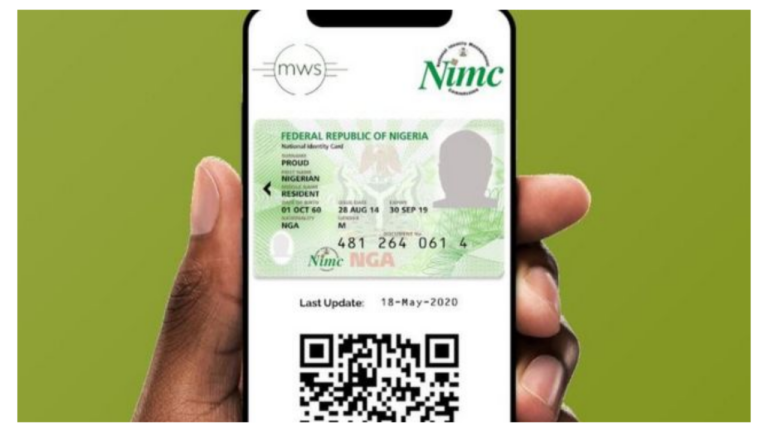What is VPN? 6 Important Reasons why you should use it!

As the internet becomes an integral part of our lives, the need to use the available tools for achieving security and privacy online has increased. Users can encrypt their internet traffic with a VPN. This has now become a popular tool for security and privacy online.
This article will define what a VPN is and its various types and advantages and assess how it can protect you online.
Learn More with The Following Links:
- 6 Network problems with quick solutions
- Value Added Services In Telecommunication: 3 Things You Must Know!
- What are Data Plans? 5 Wise Thoughts for your Next Purchase
What is a VPN?
A Virtual Private Network, or VPN, is a term that enables users to connect to a private network through a secure and encrypted connection over the internet. By encrypting user data and sending it through a server in a different area, VPNs establish a secure tunnel between the user and the website or service.
Third parties find it hard to view or access information such as online activities as the tool hides user’s IP address. This makes tracking user’s activities nearly impossible.
There’s no denying that the biggest benefit of a VPN is security. The tool is often used to encrypt all of sensitive documents, passwords, and credit card details, so that hackers and eavesdroppers cannot access them.
A VPN is very useful when connecting to public wi-fi networks common in cafes, airports, and hotels because these places are notorious for being unsecure. VPNs easily shield your data from anyone who may be spying on your connection. Even if someone attempts to steal your connection, they will not have access to any information because everything is so securely encrypted.
In addition, this IP masking tool as I will call it provide an extra layer of protection by hiding users IP addresses. Your IP address can pinpoint where you live and track your general online activity, but not if you’re connected to a VPN.
When you’re connected to a Virtual Private Network, your IP address is hidden behind the servers, which means that your online activity becomes anonymous. This also makes it much more difficult for advertisers and other malicious entities to track your activity.
Advantages of Using VPNs
Take a look at the advantages this VPN tool provides below:
1. Improved Safety
It protects your internet traffic from being intercepted by hackers, government agencies, or even ISPs, making it virtually impossible for them to access your sensitive information.
2. Safeguarding Personal Information
The tool conceals your IP address and shields your online activities, providing an extra level of privacy. This stops advertisers, websites, and other people from monitoring your online activities and targeting you with ads based on your browsing habits.
3. No Traceability
Users are able to use the internet through a host means VPN servers, which gives them a new IP address. This effectively anonymizes your online activity preventing anyone from retracing your online activities back to you.
4. Access Contents With Geographical Restrictions:
An average internet user is prohibited from accessing certain materials due to restriction with multiple websites and streaming services. However, with a VPN, users are able to connect to servers in those specific regions which will make it seem like they are browsing from that area.
This lets people bypass region-locked content and provides a greater range of options for unrestricted browsing.
5. Secure Remote Access
Employees working remotely will find it helpful to have secure access to the corporate networks. This guarantees that critical business information stays secure even when being accessed from anywhere.
6. Net Neutrality
Net neutrality is the principle that all internet traffic should be treated equally, without preferential treatment by internet service providers (ISPs). Unfortunately, in some regions, ISPs engage in practices that prioritize certain types of online traffic.
Virtual Private Networks can help preserve net neutrality by encrypting your internet traffic and preventing ISPs from monitoring or manipulating it. This ensures that your online activities remain private and that your access to information and services is not unjustly limited.
The Downsides of Using a VPN
Lets take a look at some negative impacts this tool can bring:
1. Reduced Internet Speeds
If you encryption and route your internet traffic between you and the VPN server, it may slow down your connection. Where you live, how far away the VPN server is, how busy that server is and what kind of encryption is being used will determine how much the speed is affected.
2. Pricey
Sure, free VPN services do exist, but they have their downsides as well, like no sufficient data or limited server access. Premium VPN services are usually much more reliable and wider but they need a subscription to work effectively.
3. VPN Provider Must Be Trusted
VPNs hand over data privacy to the provider which is essentially trusting them with your information. Therefore, is crucial to go with a household name and brand that has proven their users are safe and secure.
4. Exploitation
Copyright circumventing, malware dissemination, and other forms of cyber criminal activity are made easier by people looking to exploit the system.
5. Adaptability and Other Technical Problems
Specific devices or operating systems may not work with certain VPNs. Furthermore, those who do not have a lot of technical expertise may find it difficult to set up and correct VPN connections.
Errors You Might Come Across While Using a VPN
A VPN has its drawbacks too as previously mentioned. It can create problems because of a variety of reasons. Each issue the user experiences comes with a message or problem that can be dealt with separately.
Take a look below to find commonly encountered VPN problems along with their probable solutions:
| VPN ERRORS | Possible Solutions |
|---|---|
| Error 800: Unable to establish connection with the VPN server (Error 800) | You need to take a look at your VPN server’s address, username, and password. You also need to make sure that your firewall or antivirus is not obstructing the connection. |
| Error 807: The broadband connection between your system and the virtual server was disrupted (Error 807) | Check and make sure that your internet connections are stable. If it is possible, then please restart the device. |
| Error 619: No connection could be made to the remote server (Error 619) | Make sure you take a look at your VPN server’s IP address as well as make sure that there is not any network interference. |
| A connection with the VPN server has been established, but the task cannot be completed (Error 806) | Make sure the outgoing firewall on the server allows the VPN traffic. Also, double check that the correct protocol and port is used. |
| Authentication failed (Error 691) | Double check your username and password. It is necessary to also check that your account is active as well. |
| The remote device cut off the connection before it could get finished, resulting in Error 628. | Look for problems on the server side, including account options for users and server memory. |
| Device already in use by other connection (Error 633) | Shut down any other applications running on the device or modem. See if there are updated drivers available to be downloaded. |
| L2TP connection attempt failed because a security layer encountered a fault during processing (Error 789) | Check the firewall settings on your device and be sure that they permit L2TP connection. Check the settings on your server as well. |
| A remote connection could not be established because the name of the remote access server could not be resolved to an IP address (Error 868) | Verify the remote host’s server hostname or server IP. Check if DNS is functioning properly. |
| A connection could not be established with the remote computer (Error 720) | Make sure the modem drivers are properly installed. Turn off any other software that might interfere and firewalls. |
| The connection has been blocked by the policy set on the RAS/VPN server (Error 812) | Make sure to check the peer VPN server settings and policies. Ensure that the required user account is configured properly. |
Final Thoughts:
In this age of utmost digital security and privacy, virtual private network (VPN) is a powerful tool for both individuals and organizations as these technologies are beneficial to the world. As much as VPNs are useful as an IP masking tool, it is important to note that it does not provide absolute protection for all internet security issues.






